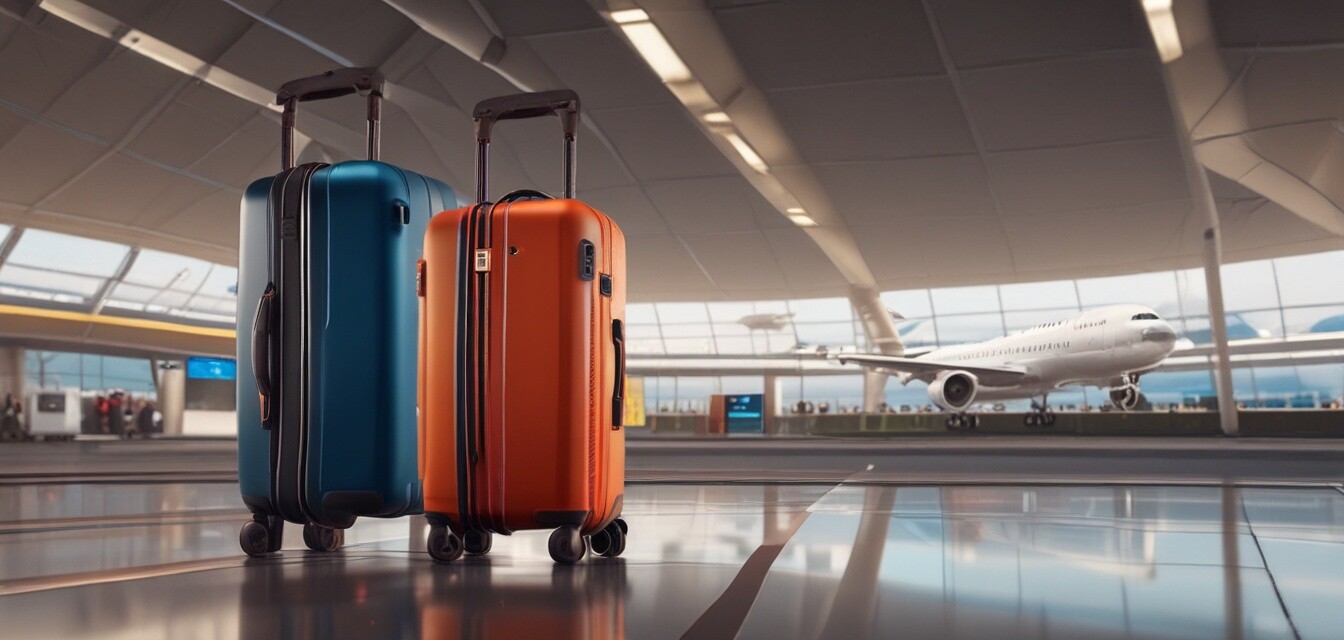
The Pros and Cons of Smart Luggage for Travelers
Key Takeaways
- Smart luggage has integrated GPS tracking, making it easier to locate your belongings.
- Many options come with additional features like USB charging ports and built-in weight sensors.
- However, smart luggage can be more expensive compared to traditional options.
- Battery concerns and airline restrictions may limit the use of some smart luggage.
Traveling can be stressful, especially when it comes to managing your belongings. Smart luggage has emerged as a popular option for many travelers, offering innovative features that aim to simplify your travel experience. However, with any convenience comes considerations to weigh. In this article, we will delve into the pros and cons of using smart luggage, helping you make informed decisions for your next adventure.
What is smart luggage?
Smart luggage refers to suitcases or bags that come equipped with technology designed to enhance the travel experience. Typically, these pieces of luggage feature GPS tracking, USB charging ports, and advanced locks. The goal is to provide travelers with tools that not only secure their belongings but also make navigating through airports and foreign locations easier and more efficient.
Advantages of smart luggage
| Feature | Description |
|---|---|
| GPS Tracking | Track the location of your luggage in real-time using a smartphone app. |
| Built-in Charging Ports | Keep your devices powered on-the-go with integrated USB charging. |
| Weight Sensors | Know the weight of your luggage before you reach the check-in line. |
| Enhanced Security | Many smart bags offer biometric or remote locking systems for improved protection. |
| Add-on Features | Some options provide extra functionalities like travel tracking and notifications. |
1. GPS Tracking
The ability to track your luggage with GPS is a game changer. No more worrying about lost bags at the airport; you can easily find out where your luggage is at any time right from your mobile device.
2. Built-in Charging Ports
Modern travelers rely heavily on their electronic devices. Smart luggage often features USB charging ports, allowing you to power up your devices while waiting in airport lounges or during layovers.
3. Weight Sensors
Weight sensors help you avoid overage fees by letting you know if your luggage exceeds the airline weight limits before you arrive at check-in.
4. Enhanced Security
Many smart luggage options include biometric locks or remote locking features, adding an extra level of security to your possessions.
5. Add-on Features
Some smart luggage also offers additional functionalities such as flight tracking or alerts if your luggage strays too far from you.
Disadvantages of smart luggage
| Concern | Description |
|---|---|
| Cost | Smart luggage can be significantly more expensive than traditional options. |
| Battery Life | Many smart features rely on batteries, which can run out, thereby affecting functionality. |
| Airline Regulations | Some airlines have restrictions on luggage that contains lithium batteries. |
| Complexity | The added technology can make smart luggage more complicated to use compared to standard bags. |
| Repairs and Maintenance | If electronic features break, repairs may be costly. |
1. Cost
Smart luggage generally comes at a premium price point. For budget-conscious travelers, this can be a significant drawback.
2. Battery Life
Smart features often depend on battery life, which can be a concern during long trips. If the battery runs out, essential functionalities may become unusable.
3. Airline Regulations
It's crucial to be aware that airlines have strict regulations regarding the use of lithium batteries. Some smart luggage may not be allowed on certain flights.
4. Complexity
The additional technology can make smart luggage more intricate, potentially leading to confusion when traveling, especially for those less tech-savvy.
5. Repairs and Maintenance
Electronic components can fail over time, and dealing with repairs can be a hassle, not to mention costly.
Conclusion
Smart luggage is revolutionizing the way we travel, providing valuable features that enhance convenience and security. However, potential buyers should carefully weigh the pros and cons before making a purchase. Understanding the technology, its benefits, and limitations will help ensure you make the best choice for your travel needs.
Pros
- Dynamic tracking capabilities
- Ability to charge devices on the move
- Weight management assistance
- Increased security features
- Additional functionalities make traveling easier
Cons
- Higher cost compared to traditional luggage
- Dependence on battery power
- Possible airline restrictions on use
- Complexity can lead to usability issues
- Risk of costly repairs or replacements
For further tips on optimizing your travel experience, check out our Travel Tips section. Explore different backpacks and daypacks for your next trip or browse our selection of carry-on luggage that suits your travel style. Don’t forget to read our comprehensive Buying Guides for assistance in selecting the perfect travel essentials.